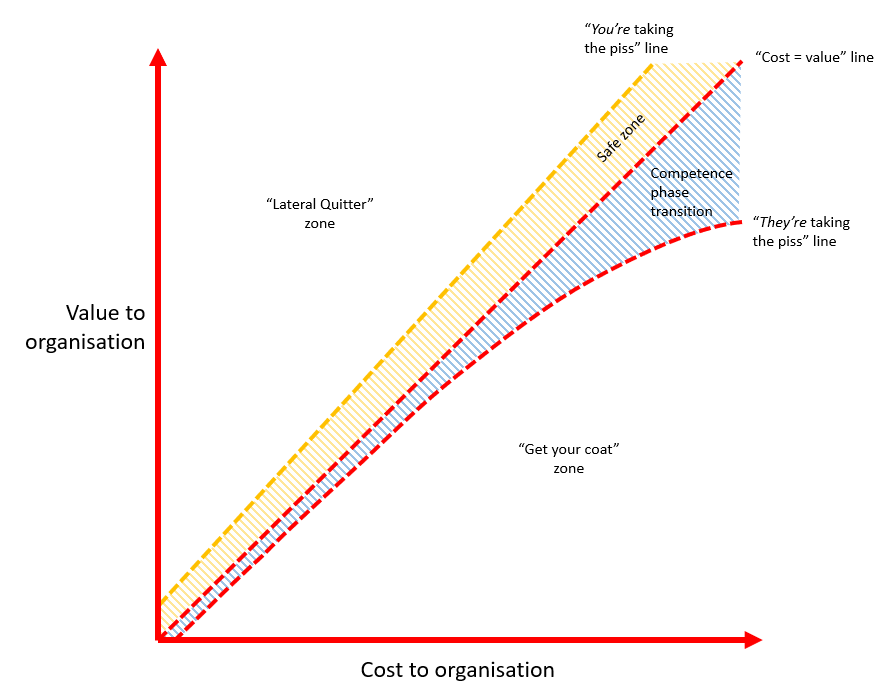Competence phase transition: Difference between revisions
Jump to navigation
Jump to search
Amwelladmin (talk | contribs) No edit summary |
Amwelladmin (talk | contribs) No edit summary |
||
| Line 1: | Line 1: | ||
{{a|work|{{image|Competence phase transition|png|The | {{a|work|{{image|Competence phase transition|png|The competence phase transition, yesterday}}}}{{d|{{PAGENAME}}|/ˈkɒmpɪtəns feɪz trænˈzɪʃ(ə)n/n}} | ||
(''Human resources''): Grazing grounds for [[weak gazelle]]s. A sort of purgatorial state occupied by earnest plodders who don’t really earn their keep but do the organisation no real harm, such that no-one can quite summon the bureaucratic energy to proactively whack them, but few will shed crocodile tears if they did decide to push off. | (''Human resources''): Grazing grounds for [[weak gazelle]]s. A sort of purgatorial state occupied by earnest plodders who don’t really earn their keep but do the organisation no real harm, such that no-one can quite summon the bureaucratic energy to proactively whack them, but few will shed crocodile tears if they did decide to push off. | ||
Note that the more expensive the employee, counter-intuitively the greater the phase transition: this is partly because the cost of getting rid of the employee is higher, but also the the more the employee is paid, the more likely she is to be the one making the decisions who to get rid of. | |||
And turkeys don’t vote for Christmas. | |||
{{sa} | {{sa} | ||
*[[Lateral quitter]] | *[[Lateral quitter]] | ||
Revision as of 18:41, 20 November 2022
|
Office anthropology™
|
Competence phase transition
/ˈkɒmpɪtəns feɪz trænˈzɪʃ(ə)n/n ({{{3}}}.)
(Human resources): Grazing grounds for weak gazelles. A sort of purgatorial state occupied by earnest plodders who don’t really earn their keep but do the organisation no real harm, such that no-one can quite summon the bureaucratic energy to proactively whack them, but few will shed crocodile tears if they did decide to push off.
Note that the more expensive the employee, counter-intuitively the greater the phase transition: this is partly because the cost of getting rid of the employee is higher, but also the the more the employee is paid, the more likely she is to be the one making the decisions who to get rid of.
And turkeys don’t vote for Christmas.
{{sa}
